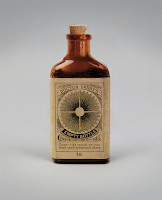 A recent article in the New York Times Magazine reviews the current science of the placebo and the remarkable work of researchers who have identified not only the fMRI signatures of the sugar pill, but also genotypes that are predisposed, by way of their neurobiology, to the benefits of placebo. We are reminded, as well, that placebo means much more than a pill. Rather, it is the totality of ritual and social context combined with trust, expectation and caring that link the ancient shaman with the modern day white-coat-and-stethoscope. The "placebo effect," understood in this way, is deeply linked to medical humanism - to the personal encounter between the ailing patient and the compassionate healer - and predates by millennia our current understanding of physiology, pathology, pharmacology or molecules. Times author Gary Greenberg (“What if the Placebo Effect isn’t a Trick,” NY Times, Nov 7th) talks with researcher Ted Kaptchuk, head of Harvard Medical School’s Program in Placebo Studies and the Therapeutic Encounter:
A recent article in the New York Times Magazine reviews the current science of the placebo and the remarkable work of researchers who have identified not only the fMRI signatures of the sugar pill, but also genotypes that are predisposed, by way of their neurobiology, to the benefits of placebo. We are reminded, as well, that placebo means much more than a pill. Rather, it is the totality of ritual and social context combined with trust, expectation and caring that link the ancient shaman with the modern day white-coat-and-stethoscope. The "placebo effect," understood in this way, is deeply linked to medical humanism - to the personal encounter between the ailing patient and the compassionate healer - and predates by millennia our current understanding of physiology, pathology, pharmacology or molecules. Times author Gary Greenberg (“What if the Placebo Effect isn’t a Trick,” NY Times, Nov 7th) talks with researcher Ted Kaptchuk, head of Harvard Medical School’s Program in Placebo Studies and the Therapeutic Encounter:“Kaptchuk may wish ‘to help reconfigure biomedicine by rejecting the idea that healing is only the application of mechanical tools.’” he writes. “He may believe that healing is a moral act in which ‘caring in the context of hope qualitatively changes clinical outcomes.’ He may be convinced that the relationship kindled by the encounter between a suffering person and a healer is a central, and almost entirely overlooked, component of medical treatment…”
Although Greenberg makes no mention of the current national efforts to measure patient experience of care, it is impossible, I think, not to think of this connection. We know from a host of studies how the physician-patient relationship drives clinical outcomes - here is just one more piece of the puzzle, linking the healing hand to molecules and brain biology and extending our understanding of the mind-body nexus. A growing interest in the patient’s experience has been spurred on in part by public reporting of HCAHPS metrics. In my view, these measures have been both a boon and an obstacle to real progress toward a renaissance of humanism in healthcare.
Certainly they have been effective in getting the issue onto the leadership agenda at every institution and at every level. This, in principle, paves the way for resourcing and prioritizing an important dimension of healthcare. On the other hand, the corporatization of “Experience” runs the risk of being reductionistic, encouraging quick wins, and critically, confusing the measurement with the thing measured, as though staring obsessively at the thermometer is some kind of substitute for throwing another log on the fire.

Here is another thought. The environment, the surround, the context of healing were understood from pre-historic times to be critical to the encounter. We no longer deal in robes, body paint or headdress as the shaman might have. But why do we think of the long white coat as any less important? Maybe we should be studying this. Just maybe, wearing the crisp lab coat and sitting at the bedside are as important to the health of our patients as selecting the right antimicrobial.
I do fear that contemporary physicians see all this emphasis on relationship, caring and, yes, the placebo effect, as at best a nicety for which we don’t have time, or at worst, an irrelevance in an age when patients receive care from “teams” whose members are, by definition, interchangeable. After all, the implication that shamanism, placebo and relationship matter is deeply disturbing, or at least it should be. Why? Because we have devised mechanisms for healthcare delivery that have systematically dismantled all of this. The work ahead of us to put Humpty Dumpty together again is truly daunting.
Nonetheless, there is a reality behind these notions that we ignore only at our own peril. And the benefits of making headway toward truly humanistic healthcare - and a more enlightened approach to the phenomenon of “placebo“ - are considerable, not only for patients but for ourselves as well. I like the vision and the metaphor offered by a Times reader, responding to Greenberg’s piece. Here is what he said:
Imagine that you are the sole survivor of an airplane crash in the desert. You look out over the harsh landscape and despair. Then you spot a shack with a display that says, “Licensed desert guide.” Instead of despair, pain and fatigue, you now experience renewed energy and hope. In regard to others, you are more open to influence and will (sometimes) do what is needed to get better.— Robert A. Karlin, associate professor of psychology, Rutgers University, NJ
In my own area, psychotherapy, the office and the diplomas on the wall do the heavy lifting. Every culture legitimizes healers, and their presence has been valuable whether they dress in frock coats or feathers and whether they bear insights, potions or scalpels. They give problems a name, describe a course and provide comfort and community. Trusting your best chance is neither irrational nor allowing yourself to be fooled.